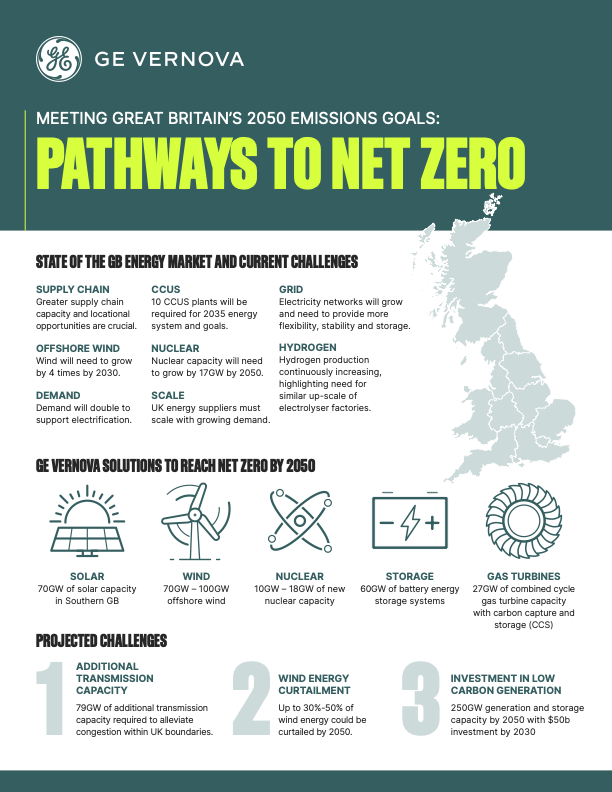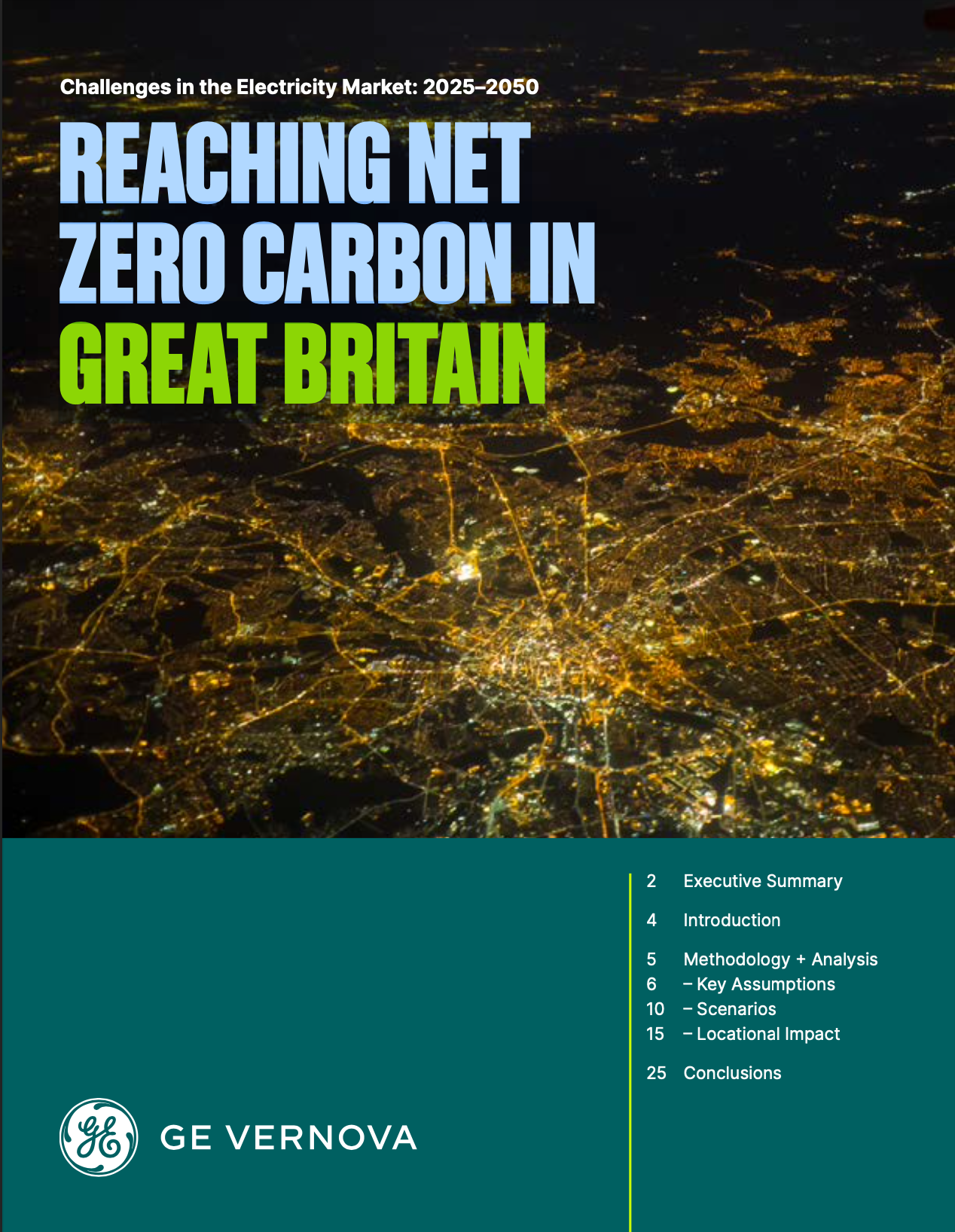Search Gas Power
What are you looking for?
Or start with a popular search:
Recommended resources

Meeting an ambitious challenge
The Great Britain (GB) electricity grid is in a state of transition. The 2008 UK Climate Change Act sets a legally binding commitment to ensure the UK reduces its greenhouse gas emission by 100% from 1990 levels by 2050 with the electricity industry to support meeting this target by decarbonising by 2035. This commitment has become known as the ‘net zero target’. To meet this challenge, GB will require significant investment in renewable and decarbonised generation as well as the transmission and distribution networks over the course of the next 30 years. Policies will need to strengthen to ensure the power market and remuneration mechanisms deliver the necessary signals to incentivise investment when and where required.

A challenge—and an opportunity
The objective of our GE Vernova study is to explore credible least cost pathways of future generation and transmission investment in Great Britain that would be required if the UK is to urgently meet its decarbonization goals. Secondly, it serves to illustrate how power plants under each pathway would operate to meet demand in the future and the implication on the system as a whole, in particular in relation to the transmission network.
White paper
The power system of the future will be complex and multifaceted. For Great Britain to meet this ambitious challenge, it will need to:
1. Enable and accelerate investments
2. Expedite the implementation of market reforms
3. Adapt energy policy and regulation.
Gas Power
Gas Power engineers cleaner, more accessible energy that communities depend on to power growth and prosperity.
Contact usDecarbonization - the future of energy
See how Gas Power is helping to build a world that works.
Learn more
© 2025 General Electric

